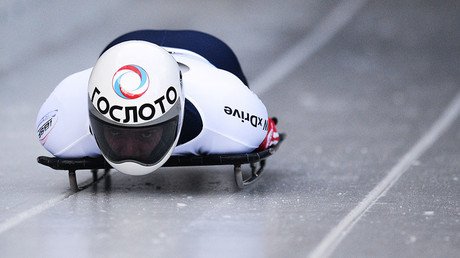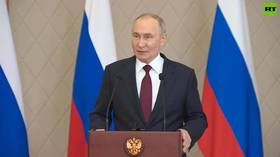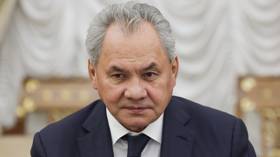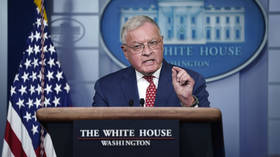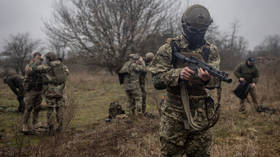‘Faulty records, inconsistent docs’: Lawyer of Russian skiers accused of doping slams McLaren report
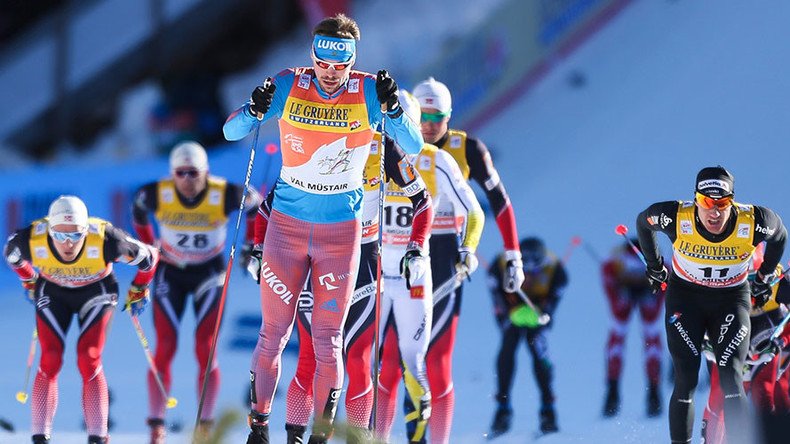
The documents used for the second part of the McLaren report into alleged Russian doping contain a significant number of inconsistencies that makes the identification of athletes questionable, a lawyer has told RT.
“If you are familiar with the McLaren report… you know that different documents are available, which refer to the athletes. I compared all of them. And these documents are not consistent,” Christof Wieschemann, the lawyer, who defends two Russian skiers Evgeny Belov and Aleksandr Legkov, told RT.
#FIS scheduled hearing in case #legkov#belov Doubts about documents to which #McLaren refers https://t.co/S3J18SItMZ#tourdeski#xcountry
— Christof Wieschemann (@wieschemann) January 11, 2017
“Evgeny Belov is mentioned for two competitions, in which he did not participate,” Wieschemann said, referring to the Russian cross country skier, who competed for Russia at the 2014 Winter Olympics, but was provisionally suspended in december 2016 over allegations of doping following the publication of the second part of the McLaren report.
The lawyer pointed out that Belov was not mentioned in several competitions, in which he did participate. According to Wieschemann, there are also “no less than ten faulty records in different [McLaren report’s] lists,” which refer to Aleksandr Legkov, a Sochi 2014 Olympic champion, who was also suspended over doping allegations.
Wieschemann also stressed that the inconsistencies he found are not some isolated single cases but a part of a larger flaw. “I do not think it is a minor error, it’s a big bug I found out,” he told RT.
“I would like to highlight that I don’t want to challenge the results of the McLaren report in total, but weakness of the McLaren report is that he was not ordered to investigate directly single athletes. And he used documents he received from third parties,” he added, emphasising those documents are inaccurate in many aspects.
“If the reasons to suspend both athletes are not sufficient, it is unlawful and they are liable for damages,” Wieschemann said, referring to his clients Belov and Legkov.
He also said that he already informed the International Ski Federation (FIS) and is expecting an answer from them within a week.
At first, “we have to exhaust the sports arbitration, in particular through CAS – Court Arbitration for Sport in Lausanne - and afterwards we will decide what’s going on. But I hope that we receive a positive result both from the FIS Doping Panel and probably from the [International Olympic Committee] IOC,” he said, commenting on the possible ways to clear the two Russian athletes from suspension.
In December, the World Anti-Doping Agency (WADA) Independent Commission, headed by Canadian sports law professor, Richard McLaren, delivered the second part of its report, which claimed that over 1,000 Russian athletes competing in the summer, winter and Paralympic games could have been involved in a manipulation system to conceal positive doping tests.
2 Russian skiers (Legkov + Belov) set to be cleared of #doping violations. Seems Belov wasn't even at races where he supposedly failed tests
— Alan Moore (@DangerKidsBooks) January 15, 2017
Following its publication, the FIS suspended six Russian skiers, including Belov and Legkov. Four Russian skeleton athletes were also provisionally suspended from competing by the International Bobsleigh and Skeleton Federation (IBSF) but their suspensions were lifted on January 8 as the federation found no sufficient evidence for the ban.
